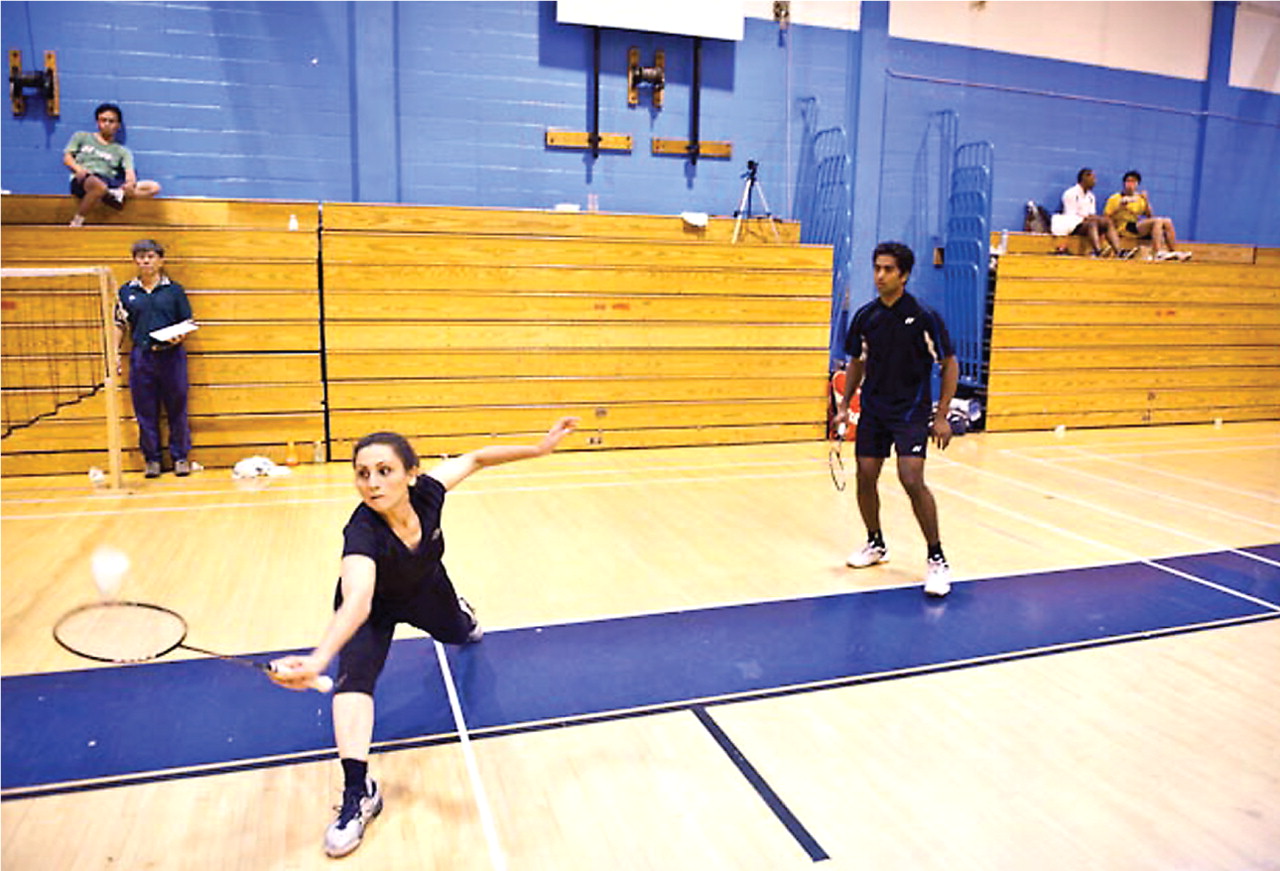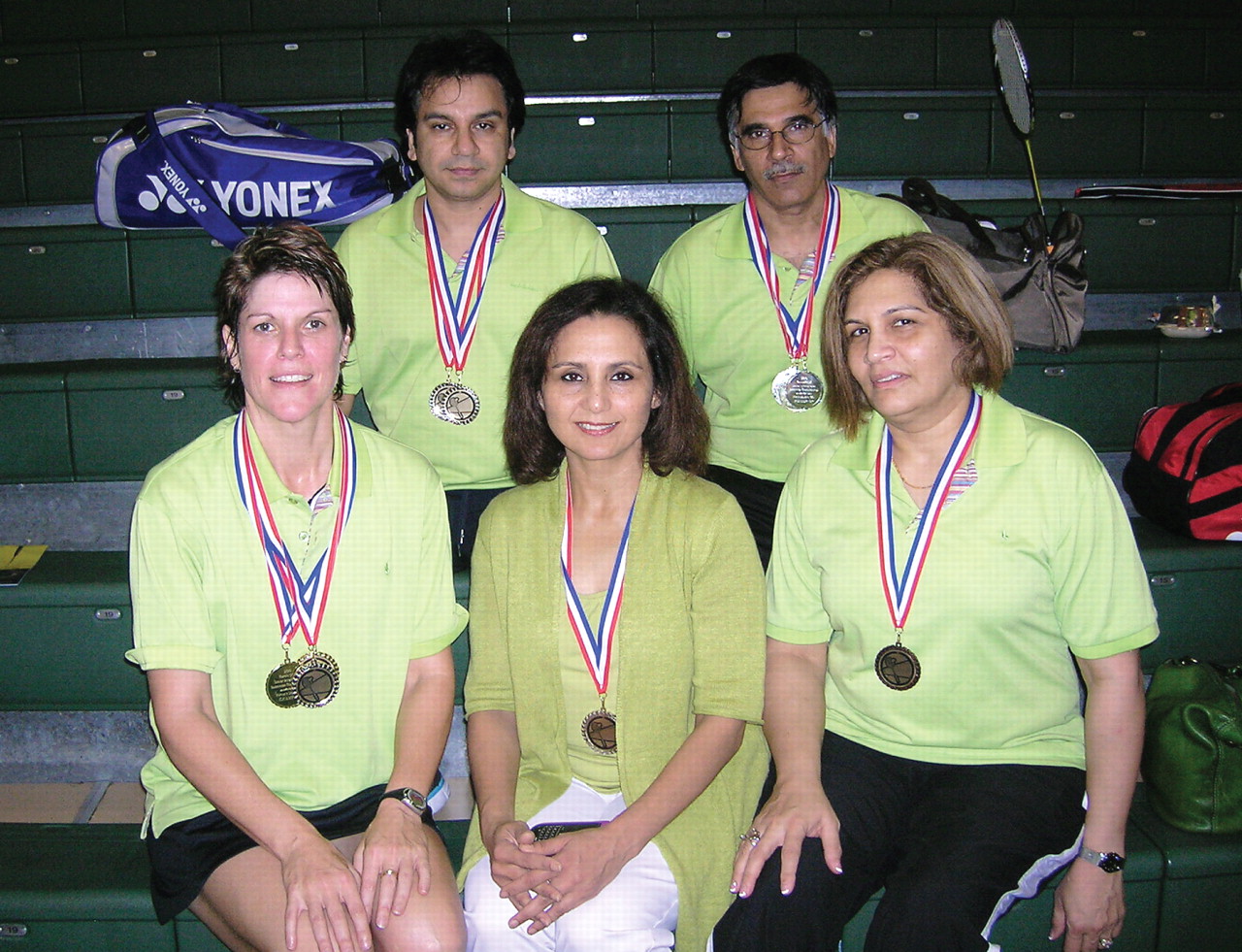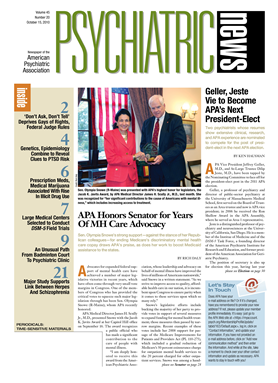Boston-area psychiatrist Batool Kazim, M.D., has never underestimated the morale-boosting power of a good, clean win by a hometown sports team for its diehard fans. In fact, she has harnessed the power of healthy competition to benefit her own patients with serious mental illness and now would like to do the same for residents of her country of origin, Pakistan.
In her own life, Kazim has fought hard to be a part of sporting competitions in a country where women were not afforded the same opportunities as men, and only through skill and determination has she triumphed.
As a preteen growing up in the 1970s in Lahore, Pakistan, Kazim was searching for her niche—a way to either fit in or distinguish herself from her peers. She ended up doing both in ways she never imagined possible.
Her father played badminton—a popular sport in parts of Europe and the Middle East—and Kazim sometimes played with him and his friends at a club with an indoor court close to their home. The adults found that she excelled at the game. In no time, the 12-year-old was winning school competitions and lugging trophies home from her games. She began playing with her brothers and winning against them, but at age 13 was relegated to play with girls because of the customs of the time.
Not Playing by the Rules
Kazim found that the girls weren't as competitive, and their style of play wasn't as fast paced or aggressive as that of the boys.
To continue to excel at the sport she now loved, she had to subvert the system. “So I cut off my long hair and dressed in my brothers' clothes and started playing with the boys,” Kazim told Psychiatric News in an interview. For two years, she attended a girl's school during the day, came home, and pretended to be a boy on the badminton court, she said. Her parents offered their support because they also wanted her to excel at the sport.
After winning a tournament held at Punjab University in 1977 against the reigning champion, Kazim won three rounds of badminton and was entered into the quarterfinals at the Pakistan National Tournament, this time playing in the women's singles division. At this tournament, national champion Tariq Wadood was also playing badminton. Kazim was hoping only to get Wadood's autograph that year, but she got something much better—an offer from Wadood's coach to play in the tournament as Wadood's partner, a proposal met with happy surprise by Kazim's family and the starstruck Kazim, now 14 years old. “We played that year and won the finals,” Kazim recalled.
From that point on, Kazim played as an amateur until the age of 18, when she entered medical school and had to devote all of her time to her studies. Kazim would not play again for 17 years.
Kazim's original plan was not to go to medical school, but veterinary school, and she always told the dogs, cats, tortoises, and birds she owned as a young girl growing up in Lahore that her high marks in science would go a long way toward fulfilling her dreams and ensuring their health and longevity. That plan fell by the wayside as she found that while pursuing her bachelor of medicine and bachelor of surgery degrees at the Allama Iqbal Medical College of Punjab University, she excelled in the care of human patients during her five years of clinical rotations. While Kazim's supervisors encouraged her to specialize in internal medicine or surgery, Kazim was drawn to psychiatry because she found that mental health issues were rarely addressed in routine patient care. She completed a six-month internship in psychiatry and followed it with internships in internal medicine and surgery, all six-months long.
Mission Became Treating the Poor
After completing her internships, Kazim ran a clinic specializing in providing free medical care to women and children in an impoverished section of Lahore. When she found that clinic funding was dwindling, she ran the clinic out of her parents' home and relied on donations to purchase medications for her patients.
In her final year of medical school, Kazim became part of a semi-arranged marriage (that is, the marriage was arranged by their families, but the couple had a say in the matter), and her family grew to include two sons, Syed and Azam, born a year apart. In 1990, she moved to the United States with her husband and children, aged 2 and 3 at the time. They eventually settled close to New York City, where her husband started a neurology residency program and Kazim began a psychiatry internship at Beth Israel Medical Center in July 1995.
Appearances Are Deceiving
Kazim appeared to be thriving during her internship and later as a psychiatry resident at the University of Massachusetts Medical Center, where she eventually earned a position as chief resident. But what none of her fellow residents or supervisors realized was that she was barely surviving at home as a victim of domestic violence. With the help of the legal system, Kazim was able to extricate herself and her two sons from her tumultuous and sometimes violent home life.
In Kazim's case, and in the case of other Muslim women, one of the most “soul-crushing” aspects of domestic abuse is when it is justified through a false interpretation of certain verses in the Quran, she said. “These verses are taken out of context completely” by the abusers, she noted. “Muslims strive to try to emulate the prophet Mohammed, who was the most benevolent, kind, and soft-spoken man.”
Speaking out about domestic violence was part of Kazim's recovery—she began lecturing on the topic beginning two years ago to a variety of audiences in this country and abroad “to make this world a bit safer for my 7-year-old daughter, Sarah, and for all the silent women in the world,” she said.
She met her current husband, William Cox, Ed.D., eight years ago while working at Westborough State Hospital in Westborough, Mass., where she was an attending psychiatrist. While there, she sought to resolve some of the verbal and physical conflicts between patients on her unit by finding a pingpong table and setting it up in the day hall.
“Bill helped me find and set up the table and challenged me to a match, and I promptly won,” she said. Each day, Kazim kicked off her heels and started playing with the patients and mental health workers. She also organized tournaments among the patients, who became excited about playing the game.
Return to the World of Sports
After a 17-year hiatus from professional sports, Kazim began playing badminton again, and last year she traveled to Sydney, Australia, to compete in the World Masters Games with a group of seasoned professionals with whom she'd played in the past. “The Magnificent Seven,” as the team called themselves, won the bronze medal.
Kazim currently divides her time between teaching medical students as an instructor in psychiatry at Harvard Medical School, lecturing in the United States and abroad, and treating patients at a clinic affiliated with Massachusetts General Hospital.
She is a member of Harvard Medical School's Cross-Cultural Care Committee, and she treats a diverse group of ethnic minorities who are economically disadvantaged.
“I'm very bothered by the prevalent racial and ethnic disparities in health care, something I see every day in my clinical work,” she said. Although she is bolstered by the impact she has on the lives of her patients and their families, she said she is frustrated because “the reality is that the system does not reward those working with such a complex patient population because of fiscal constraints.”
Kazim explained that everyone who works with a patient “has a role on the team, but the patient is the captain of the team.” This approach resonates with her patients, she said, and helps them feel empowered and more in control of their lives.
Kazim has incorporated her love of the game not only in her daily work, but also in a larger plan to give back to her homeland. Last year, she met with a group of nearly 100 psychiatrists of Pakistani origin to discuss how to combat the extremism plaguing the country and promote mental health among its residents (see also
You Can Assist in Flood Relief).
“In past years,” she explained, “Pakistan has boasted world champions in field hockey, badminton, cricket, and squash. Currently, our sports teams are not doing well, and that demoralizes our entire nation.”
Building Role Models
Young people need role models to emulate, Kazim said, but since the government in Pakistan is mired in corruption, role models are few, she pointed out. She devised a plan to work with other physicians to supervise and fund better facilities and athletic and mental skills training for the country's sports teams to help them to excel once again.
“If these teams are performing well, it will raise the morale of the entire country,” she noted. She envisions a time when boys and girls living in Pakistan can look up to sports figures, as she did as a young girl, Kazim said.
As for her own involvement in champion-level sports, Kazim plans to compete again in the World Masters games again when they are held in Torino, Italy, in 2013.
“Playing badminton internationally has been a dream fulfilled for me,” she said. “I have found myself once again.”



